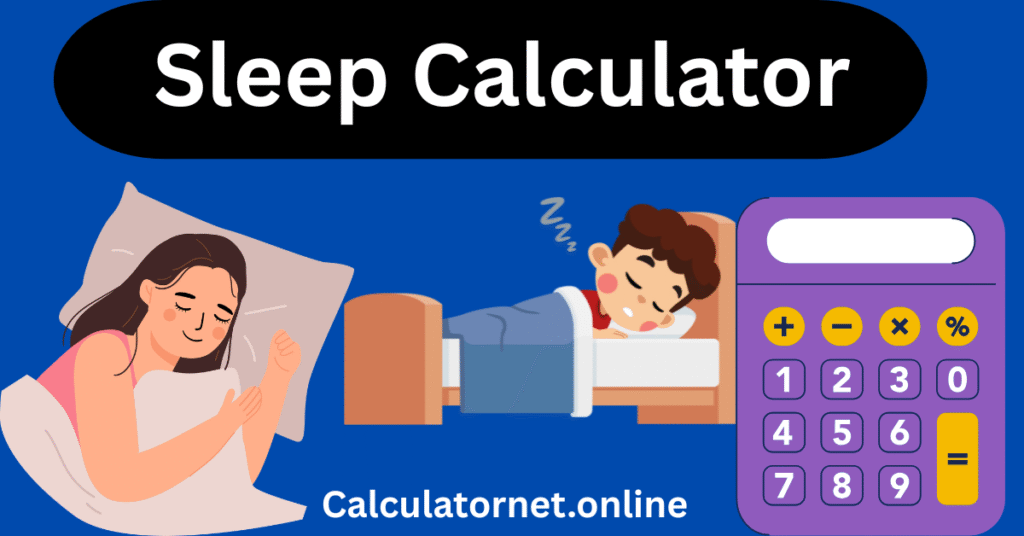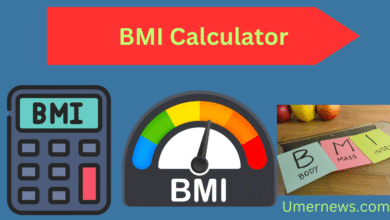Sleep Calculator
Contents
- 1 Sleep Cycle Calculator
- 2 Sleep Calculator: Find Your Perfect Bedtime for a Great Night’s Sleep
- 2.1 The Science Behind Your Sleep Cycle
- 2.2 How a Sleep Calculator Works
- 2.3 The Right Amount of Sleep for Your Age
- 2.4 Simple Ways to Improve Your Sleep Quality
- 2.5 Frequently Asked Questions
- 2.5.1 What happens if I wake up in the middle of a sleep cycle?
- 2.5.2 Is it better to get six hours of sleep or seven and a half?
- 2.5.3 Does a sleep calculator work for everyone?
- 2.5.4 Can naps disrupt my sleep cycle?
- 2.5.5 Why do I feel more tired on weekends?
- 2.5.6 Is it bad to sleep less than seven hours a night?
- 2.5.7 What is the ideal sleep time for an adult?
- 2.6 Conclusion
Sleep Calculator

Sleep Cycle Calculator
Calculate your ideal sleep and wake times for a full night’s rest.
Calculate Bedtime
I want to wake up at:
Calculate Wake-Up Time
I am going to bed at:
Support This Tool 💖
If you find this Sleep Calculator helpful, consider donating to keep it running.
Bank Details
Account Holder: Majid Farooq
Bank: Habib Bank Limited
Account Number/IBAN: PK40HABB0001947100292703
Country: Pakistan
Sleep Calculator: Find Your Perfect Bedtime for a Great Night’s Sleep
Are you constantly tired, even after what you think is a full night’s rest? The secret to waking up refreshed might not just be about how long you sleep, but also about when you go to bed. Understanding your body’s natural sleep cycles is the key to unlocking better rest. This is where a sleep calculator comes in—it’s a powerful tool that helps you time your sleep perfectly so you can wake up feeling energized, not groggy.
In this guide, we’ll dive into the science behind sleep cycles, explain why timing your bedtime is so important, and show you exactly how to use a sleep calculator to optimize your rest. You’ll learn the difference between REM and non-REM sleep and discover how much sleep you actually need based on your age. Get ready to stop hitting the snooze button and start your days feeling truly refreshed.
The Science Behind Your Sleep Cycle
Your body doesn’t just “sleep”—it goes through a series of predictable cycles. Each full sleep cycle lasts, on average, about 90 minutes. A healthy night’s sleep includes four to six of these cycles. Waking up in the middle of a sleep cycle can leave you feeling disoriented and exhausted, even if you’ve been in bed for eight hours. This is why timing your wake-up time to the end of a cycle is so crucial for feeling rested.
Non-REM vs. REM Sleep
Sleep is broadly divided into two main stages: non-REM (non-rapid eye movement) and REM (rapid eye movement) sleep.
- Non-REM Sleep: This is the deepest, most restorative part of sleep. During this time, your body temperature and heart rate drop, and your brain replenishes its energy stores. It’s when your body does its most important work of physical repair and growth.
- REM Sleep: Characterized by rapid eye movements, this stage is where most of your dreaming occurs. While your body is virtually paralyzed, your brain is highly active. REM sleep is essential for cognitive functions like memory consolidation and emotional regulation. Being deprived of REM sleep can lead to anxiety, irritability, and difficulty concentrating.
How a Sleep Calculator Works
A sleep calculator uses the 90-minute sleep cycle principle to help you determine the best time to go to bed or wake up. Instead of just aiming for a random seven or eight hours, you’re aiming to complete a full number of cycles.
For example, if you need to wake up at 7:00 AM, the calculator will work backward in 90-minute increments to suggest optimal bedtimes. It accounts for the average time it takes to fall asleep (around 15 minutes) to give you a more accurate result.
- To wake up at 7:00 AM, a good bedtime would be 9:45 PM or 11:15 PM.
- To wake up at 6:00 AM, you should aim for a bedtime of 8:45 PM or 10:15 PM.
By using a sleep calculator, you’re working with your body’s natural rhythm, not against it. This simple tool can make a significant difference in the quality of your sleep.
The Right Amount of Sleep for Your Age
While the sleep calculator is a great tool for timing your sleep, it’s also important to know how many hours you should be aiming for each night. The amount of sleep you need changes throughout your life. The Centers for Disease Control and Prevention (CDC) provides clear guidelines based on age.
| Age Group | Recommended Hours of Sleep Per Day |
| 0–3 months | 14–17 hours |
| 4–12 months | 12–16 hours |
| 1–2 years | 11–14 hours |
| 3–5 years | 10–13 hours |
| 6–12 years | 9–12 hours |
| 13–18 years | 8–10 hours |
| 18–60 years | 7+ hours |
| 61–64 years | 7–9 hours |
| 65+ years | 7–8 hours |
Remember, these are general recommendations. The key is to find what works for you. If you are getting the recommended amount of sleep but still feel tired during the day, it might be a sign of poor sleep quality, which can be improved by following better sleep hygiene practices.
Simple Ways to Improve Your Sleep Quality
Beyond using a sleep calculator, you can improve the quality of your sleep with a few simple habits.
- Stick to a Schedule: Go to bed and wake up at roughly the same time every day, even on weekends. This helps regulate your body’s internal clock, also known as your circadian rhythm.
- Create a Relaxing Environment: Make your bedroom a sanctuary. Keep it cool, dark, and quiet. Consider using blackout curtains, a white noise machine, or a fan.
- Limit Screen Time: The blue light from phones, tablets, and computers can disrupt melatonin production, a hormone that helps regulate sleep. Try to avoid screens for at least an hour before bed.
- Watch What You Consume: Avoid caffeine and alcohol late in the day, as both can interfere with your sleep cycle. A light, healthy snack is better than a heavy meal before bed.
Frequently Asked Questions
What happens if I wake up in the middle of a sleep cycle?
Waking up during a deep sleep stage (in the middle of a cycle) can lead to sleep inertia—that groggy, disoriented feeling. This is why timing your wake-up for the end of a cycle is so beneficial.
Is it better to get six hours of sleep or seven and a half?
Based on the 90-minute sleep cycle, seven and a half hours (five full cycles) is generally better than six hours (four full cycles) because you’re waking up at the end of a completed cycle, which leaves you feeling more refreshed.
Does a sleep calculator work for everyone?
Sleep cycles can vary slightly from person to person. While the average is 90 minutes, it’s a good idea to use a sleep calculator as a starting point. Adjust your bedtime by 15-30 minutes if you find yourself still feeling tired in the mornings.
Can naps disrupt my sleep cycle?
Yes, long or late naps can disrupt your circadian rhythm. If you need a nap, keep it short (around 20-30 minutes) and take it earlier in the day to avoid affecting your nighttime sleep.
Why do I feel more tired on weekends?
This is often due to “social jetlag,” where your weekend sleep schedule is different from your weekday schedule. This messes with your internal clock. Try to keep your sleep and wake times consistent, even on days off.
Is it bad to sleep less than seven hours a night?
For most adults, consistently sleeping less than seven hours per night can negatively impact health. It’s linked to an increased risk of chronic conditions like obesity, diabetes, and heart disease.
What is the ideal sleep time for an adult?
While it varies, the ideal sleep time for an adult is typically between 7 and 9 hours. Using a sleep calculator helps you get the most out of that time by aligning your wake-up time with the end of a sleep cycle.
Conclusion
A sleep calculator is more than just a novelty; it’s a smart tool that uses the science of sleep cycles to help you get the most restorative rest possible. By understanding your body’s natural rhythms and applying a few simple habits, you can stop feeling groggy and start waking up feeling truly ready to take on the day.
Ready to try it for yourself? Use a sleep calculator to find your perfect bedtime tonight and feel the difference tomorrow morning.





